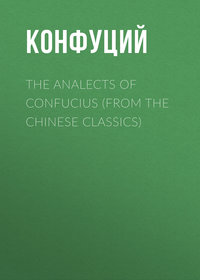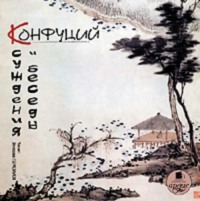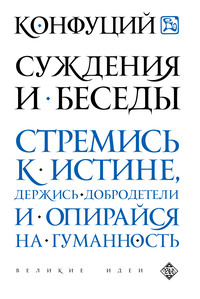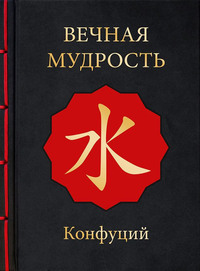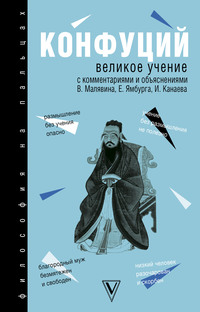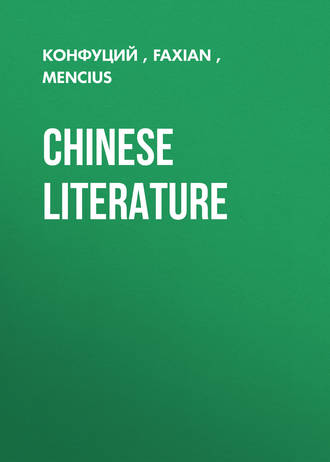 полная версия
полная версияChinese Literature
~The Virtuous Manners of the Young Women~
High and compressed, the Southern trees No shelter from the sun afford. The girls free ramble by the Han, But will not hear enticing word. Like the broad Han are they, Through which one cannot dive; And like the Keang's long stream, Wherewith no raft can strive. Many the fagots bound and piled; The thorns I'd hew still more to make. As brides, those girls their new homes seek; Their colts to feed I'd undertake. Like the broad Han are they, Through which one cannot dive; And like the Keang's long stream, Wherewith no raft can strive. Many the fagots bound and piled; The Southern-wood I'd cut for more. As brides, those girls their new homes seek; Food for their colts I'd bring large store. Like the broad Han are they, Through which one cannot dive; And like the Keang's long stream, Wherewith no raft can strive.~Praise of a Rabbit-Catcher~ Careful he sets his rabbit-nets all round; Chang-chang his blows upon the pegs resound. Stalwart the man and bold! his bearing all Shows he might be his prince's shield and wall. Careful he is his rabbit-nets to place Where many paths of rabbits' feet bear trace. Stalwart the man and bold! 'tis plain to see He to his prince companion good would be. Careful he is his rabbit-nets to spread, Where in the forest's depth the trees give shade. Stalwart the man and bold! fit his the part Guide to his prince to be, and faithful heart.~The Song of the Plantain-Gatherers~ We gather and gather the plantains; Come gather them anyhow. Yes, gather and gather the plantains, And here we have got them now. We gather and gather the plantains; Now off the ears we must tear. Yes, gather and gather the plantains, And now the seeds are laid bare. We gather and gather the plantains, The seeds in our skirts are placed. Yes, gather and gather the plantains. Ho! safe in the girdled waist!~The Affection of the Wives on the Joo~ Along the raised banks of the Joo, To hew slim stem and branch I wrought, My lord away, my husband true, Like hunger-pang my troubled thought! Along the raised banks of the Joo, Branch and fresh shoot confessed my art. I've seen my lord, my husband true, And still he folds me in his heart. As the toiled bream makes red its tail, Toil you, Sir, for the Royal House; Amidst its blazing fires, nor quail:— Your parents see you pay your vows.BOOK II
THE ODES OF SHAOU AND THE SOUTH
~The Marriage of a Princess~ In the magpie's nest Dwells the dove at rest. This young bride goes to her future home; To meet her a hundred chariots come. Of the magpie's nest Is the dove possessed. This bride goes to her new home to live; And escort a hundred chariots give. The nest magpie wove Now filled by the dove. This bride now takes to her home her way; And these numerous cars her state display.~The Industry and Reverence of a Prince's Wife~ Around the pools, the islets o'er, Fast she plucks white Southern-wood, To help the sacrificial store; And for our prince does service good. Where streams among the valleys shine, Of Southern-woods she plucks the white; And brings it to the sacred shrine, To aid our prince in solemn rite. In head-dress high, most reverent, she The temple seeks at early dawn. The service o'er, the head-dress see To her own chamber slow withdrawn.~The Wife of Some Great Officer Bewails His Absence~ Shrill chirp the insects in the grass; All about the hoppers spring. While I my husband do not see, Sorrow must my bosom wring. O to meet him! O to greet him! Then my heart would rest and sing. Ascending high that Southern hill, Turtle ferns I strove to get. While I my husband do not see, Sorrow must my heart beset. O to meet him! O to greet him! Then my heart would cease to fret. Ascending high that Southern hill, Spinous ferns I sought to find. While I my husband do not see, Rankles sorrow in my mind. O to meet him! O to greet him! In my heart would peace be shrined.~The Diligence of the Young Wife of an Officer~ She gathers fast the large duckweed, From valley stream that southward flows; And for the pondweed to the pools Left on the plains by floods she goes. The plants, when closed her toil, she puts In baskets round and baskets square. Then home she hies to cook her spoil, In pans and tripods ready there. In sacred chamber this she sets, Where the light falls down through the wall. 'Tis she, our lord's young reverent wife, Who manages this service all.~The Love of the People for the Duke of Shaou~ O fell not that sweet pear-tree! See how its branches spread. Spoil not its shade, For Shaou's chief laid Beneath it his weary head. O clip not that sweet pear-tree! Each twig and leaflet spare. 'Tis sacred now, Since the lord of Shaou, When weary, rested him there. O touch not that sweet pear-tree! Bend not a twig of it now. There long ago, As the stories show, Oft halted the chief of Shaou.~The Easy Dignity of the Officers at Some Court~ Arrayed in skins of lamb or sheep, With five silk braidings all of white, From court they go, to take their meal, All self-possessed, with spirits light. How on their skins of lamb or sheep The five seams wrought with white silk show! With easy steps, and self-possessed, From court to take their meal, they go. Upon their skins of lamb or sheep Shines the white silk the seams to link. With easy steps and self-possessed, They go from court to eat and drink.~Anxiety of a Young Lady to Get Married~
Ripe, the plums fall from the bough; Only seven-tenths left there now! Ye whose hearts on me are set, Now the time is fortunate! Ripe, the plums fall from the bough; Only three-tenths left there now! Ye who wish my love to gain, Will not now apply in vain! No more plums upon the bough! All are in my basket now! Ye who me with ardor seek, Need the word but freely speak!BOOK III
THE ODES OF P'EI
~An Officer Bewails the Neglect with which He is Treated~ It floats about, that boat of cypress wood, Now here, now there, as by the current borne. Nor rest nor sleep comes in my troubled mood; I suffer as when painful wound has torn The shrinking body. Thus I dwell forlorn, And aimless muse, my thoughts of sorrow full. I might with wine refresh my spirit worn; I might go forth, and, sauntering try to cool The fever of my heart; but grief holds sullen rule. My mind resembles not a mirror plate, Reflecting all the impressions it receives. The good I love, the bad regard with hate; I only cherish whom my heart believes. Colleagues I have, but yet my spirit grieves, That on their honor I cannot depend. I speak, but my complaint no influence leaves Upon their hearts; with mine no feelings blend; With me in anger they, and fierce disdain contend. My mind is fixed, and cannot, like a stone, Be turned at will indifferently about; And what I think, to that, and that alone, I utterance give, alike within, without; Nor can like mat be rolled and carried out. With dignity in presence of them all, My conduct marked, my goodness who shall scout? My foes I boldly challenge, great and small, If there be aught in me they can in question call. How full of trouble is my anxious heart! With hate the blatant herd of creatures mean Ceaseless pursue. Of their attacks the smart Keeps my mind in distress. Their venomed spleen Aye vents itself; and with insulting mien They vex my soul; and no one on my side A word will speak. Silent, alone, unseen, I think of my sad case; then opening wide My eyes, as if from sleep, I beat my breast, sore-tried. Thy disc, O sun, should ever be complete, While thine, O changing moon, doth wax and wane. But now our sun hath waned, weak and effete, And moons are ever full. My heart with pain Is firmly bound, and held in sorrow's chain, As to the body cleaves an unwashed dress. Silent I think of my sad case; in vain I try to find relief from my distress. Would I had wings to fly where ills no longer press!~A Wife Deplores the Absence of Her Husband~ Away the startled pheasant flies, With lazy movement of his wings. Borne was my heart's lord from my eyes;— What pain the separation brings! The pheasant, though no more in view, His cry, below, above, forth sends. Alas! my princely lord, 'tis you— Your absence, that my bosom rends. At sun and moon I sit and gaze, In converse with my troubled heart. Far, far from me my husband stays! When will he come to heal its smart? Ye princely men who with him mate, Say, mark ye not his virtuous way. His rule is—covet nought, none hate;— How can his steps from goodness stray?~The Plaint of a Rejected Wife~ The east wind gently blows, With cloudy skies and rain. 'Twixt man and wife should ne'er be strife, But harmony obtain. Radish and mustard plants Are used, though some be poor; While my good name is free from blame, Don't thrust me from your door. I go along the road, Slow, with reluctant heart. Your escort lame to door but came, There glad from me to part. Sow-thistle, bitter called, As shepherd's purse is sweet; With your new mate you feast elate, As joyous brothers meet.Part clear, the stream of King Is foul beside the Wei. You feast elate with your new mate, And take no heed of me. Loose mate, avoid my dam, Nor dare my basket move! Person slighted, life all blighted, What can the future prove?
The water deep, in boat, Or raft-sustained, I'd go; And where the stream did narrow seem, I dived or breasted through. I labored to increase Our means, or great or small; When 'mong friends near death did appear, On knees to help I'd crawl. No cherishing you give, I'm hostile in your eyes. As pedler's wares for which none cares, My virtues you despise. When poverty was nigh, I strove our means to spare; You, now rich grown, me scorn to own; To poison me compare. The stores for winter piled Are all unprized in spring. So now, elate with your new mate, Myself away you fling. Your cool disdain for me A bitter anguish hath. The early time, our love's sweet prime, In you wakes only wrath.~Soldiers of Wei Bewail Separation from Their Families~ List to the thunder and roll of the drum! See how we spring and brandish the dart! Some raise Ts'aou's walls; some do field work at home; But we to the southward lonely depart. Our chief, Sun Tsze-chung, agreement has made, Our forces to join with Ch'in and with Sung. When shall we back from this service be led? Our hearts are all sad, our courage unstrung. Here we are halting, and there we delay; Anon we soon lose our high-mettled steeds. The forest's gloom makes our steps go astray; Each thicket of trees our searching misleads. For death as for life, at home or abroad, We pledged to our wives our faithfulest word. Their hands clasped in ours, together we vowed, We'd live to old age in sweetest accord. This march to the South can end but in ill; Oh! never shall we our wives again meet. The word that we pledged we cannot fulfil; Us home returning they never will greet.~An Officer Tells of His Mean Employment~ With mind indifferent, things I easy take; In every dance I prompt appearance make:— Then, when the sun is at his topmost height, There, in the place that courts the public sight. With figure large I in the courtyard dance, And the duke smiles, when he beholds me prance. A tiger's strength I have; the steeds swift bound; The reins as ribbons in my hands are found. See how I hold the flute in my left hand; In right the pheasant's plume, waved like a wand; With visage red, where rouge you think to trace, While the duke pleased, sends down the cup of grace! Hazel on hills; the ling in meadow damp;— Each has its place, while I'm a slighted scamp. My thoughts go back to th' early days of Chow, And muse upon its chiefs, not equalled now. O noble chiefs, who then the West adorned, Would ye have thus neglected me and scorned?~An Officer Sets Forth His Hard Lot~ My way leads forth by the gate on the north; My heart is full of woe. I hav'n't a cent, begged, stolen, or lent, And friends forget me so. So let it be! 'tis Heaven's decree. What can I say—a poor fellow like me? The King has his throne, sans sorrow or moan; On me fall all his cares, And when I come home, resolved not to roam, Each one indignant stares. So let it be! 'tis Heaven's decree. What can I say—a poor fellow like me? Each thing of the King, and the fate of the State, On me come more and more. And when, sad and worn, I come back forlorn, They thrust me from the door. So let it be! 'tis Heaven's decree. What can I say—a poor fellow like me?~The Complaint of a Neglected Wife~ When the upper robe is green, With a yellow lining seen, There we have a certain token, Right is wronged and order broken. How can sorrow from my heart In a case like this depart? Color green the robe displays; Lower garment yellow's blaze. Thus it is that favorite mean In the place of wife is seen. Vain the conflict with my grief; Memory denies relief. Yes, 'twas you the green who dyed, You who fed the favorite's pride. Anger rises in my heart, Pierces it as with a dart. But on ancient rules lean I, Lest to wrong my thoughts should fly. Fine or coarse, if thin the dress, Cold winds always cause distress. Hard my lot, my sorrow deep, But my thoughts in check I keep. Ancient story brings to mind Sufferers who were resigned.[NOTE.—Yellow is one of the five "correct" colors of the Chinese, while green is one of the "intermediate" colors that are less esteemed. Here we have the yellow used merely as a lining to the green, or employed in the lower, or less honorable, part of the dress;—an inversion of propriety, and intimating how a favorite had usurped the place of the rightful wife and thrust her down.
~In Praise of a Maiden~ O sweet maiden, so fair and retiring, At the corner I'm waiting for you; And I'm scratching my head, and inquiring What on earth it were best I should do. Oh! the maiden, so handsome and coy, For a pledge gave a slim rosy reed. Than the reed is she brighter, my joy; On her loveliness how my thoughts feed! In the pastures a t'e blade she sought, And she gave it, so elegant, rare. Oh! the grass does not dwell in my thought, But the donor, more elegant, fair.~Discontent~ As when the north winds keenly blow, And all around fast falls the snow, The source of pain and suffering great, So now it is in Wei's poor state. Let us join hands and haste away, My friends and lovers all. 'Tis not a time will brook delay; Things for prompt action call. As when the north winds whistle shrill, And drifting snows each hollow fill, The source of pain and suffering great, So now it is in Wei's poor state, Let us join hands, and leave for aye, My friends and lovers all, 'Tis not a time will brook delay; Things for prompt action call. We look for red, and foxes meet; For black, and crows our vision greet. The creatures, both of omen bad, Well suit the state of Wei so sad. Let us join hands and mount our cars, My friends and lovers all. No time remains for wordy jars; Things for prompt action call.~Chwang Keang Bemoans Her Husband's Cruelty~ Fierce is the wind and cold; And such is he. Smiling he looks, and bold Speaks mockingly. Scornful and lewd his words, Haughty his smile. Bound is my heart with cords In sorrow's coil. As cloud of dust wind-blown, Just such is he. Ready he seems to own, And come to me. But he comes not nor goes, Stands in his pride. Long, long, with painful throes, Grieved I abide. Strong blew the wind; the cloud Hastened away. Soon dark again, the shroud Covers the day. I wake, and sleep no more Visits my eyes. His course I sad deplore, With heavy sighs. Cloudy the sky, and dark; The thunders roll. Such outward signs well mark My troubled soul. I wake, and sleep no more Comes to give rest. His course I sad deplore, In anguished breast.[NOTESelections from Books IV., V., and VI., have been omitted.—EDITOR.
BOOK VII
THE ODES OF CH'ING
~The People's Admiration for Duke Woo~ The black robes well your form befit; When they are worn we'll make you new. Now for your court! oh! there we'll sit, And watch how you your duties do. And when we to our homes repair, We'll send to you our richest fare, Such is the love to you we bear! Those robes well with your virtue match; When they are worn we'll make you new. Now for your court! There will we watch, Well pleased, how you your duties do. And when we to our homes repair, We'll send to you our richest fare, Such is the love to you we bear! Those robes your character beseem; When they are worn we'll make you new. Now for your court! oh! there we deem It pleasure great your form to view. And when we to our homes repair, We'll send to you our richest fare, Such is the love to you we bear!~A Wife Consoled by Her Husband's Arrival~ Cold is the wind, fast falls the rain, The cock aye shrilly crows. But I have seen my lord again;— Now must my heart repose. Whistles the wind, patters the rain, The cock's crow far resounds. But I have seen my lord again, And healed are my heart's wounds. All's dark amid the wind and rain, Ceaseless the cock's clear voice! But I have seen my lord again;— Should not my heart rejoice?~In Praise of Some Lady~ There by his side in chariot rideth she, As lovely flower of the hibiscus tree, So fair her face; and when about they wheel, Her girdle gems of Ken themselves reveal. For beauty all the House of Këang have fame; Its eldest daughter—she beseems her name. There on the path, close by him, walketh she, Bright as the blossom of hibiscus tree, And fair her face; and when around they flit, Her girdle gems a tinkling sound emit. Among the Keang she has distinguished place, For virtuous fame renowned, and peerless grace.~A Man's Praise of His Wife~ My path forth from the east gate lay, Where cloud-like moved the girls at play. Numerous are they, as clouds so bright, But not on them my heart's thoughts light. Dressed in a thin white silk, with coiffure gray Is she, my wife, my joy in life's low way. Forth by the covering wall's high tower, I went, and saw, like rush in flower, Each flaunting girl. Brilliant are they, But not with them my heart's thoughts stay. In thin white silk, with head-dress madder-dyed, Is she, my sole delight, 'foretime my bride.~An Entreaty~ Along the great highway, I hold you by the cuff. O spurn me not, I pray, Nor break old friendship off. Along the highway worn, I hold your hand in mine. Do not as vile me scorn; Your love I can't resign.~A Woman Scorning Her Lover~ O dear! that artful boy Refuses me a word! But, Sir, I shall enjoy My food, though you're absurd! O dear! that artful boy My table will not share! But, Sir, I shall enjoy My rest, though you're not there!~A Lady Mourns the Absence of Her Student Lover~ You student, with the collar blue, Long pines my heart with anxious pain. Although I do not go to you, Why from all word do you refrain? O you, with girdle strings of blue, My thoughts to you forever roam! Although I do not go to you, Yet why to me should you not come? How reckless you, how light and wild, There by the tower upon the wall! One day, from sight of you exiled, As long as three long months I call.[NOTESelections from Books IV., V., and VI., have been omitted.—EDITOR.]
BOOK VIII
THE ODES OF TS'E
~A Wife Urging Her Husband to Action~ His lady to the marquis says, "The cock has crowed; 'tis late. Get up, my lord, and haste to court. 'Tis full; for you they wait." She did not hear the cock's shrill sound, Only the blueflies buzzing round. Again she wakes him with the words, "The east, my lord, is bright. A crowded court your presence seeks; Get up and hail the light." 'Twas not the dawning light which shone, But that which by the moon was thrown. He sleeping still, once more she says, "The flies are buzzing loud. To lie and dream here by your side Were pleasant, but the crowd Of officers will soon retire; Draw not on you and me their ire!"~The Folly of Useless Effort~ The weeds will but the ranker grow, If fields too large you seek to till. To try to gain men far away With grief your toiling heart will fill, If fields too large you seek to till, The weeds will only rise more strong. To try to gain men far away Will but your heart's distress prolong. Things grow the best when to themselves Left, and to nature's vigor rare. How young and tender is the child, With his twin tufts of falling hair! But when you him ere long behold, That child shall cap of manhood wear!~The Prince of Loo~ A grand man is the prince of Loo, With person large and high. Lofty his front and suited to The fine glance of his eye! Swift are his feet. In archery What man with him can vie? With all these goodly qualities, We see him and we sigh! Renowned through all the land is he, The nephew of our lord. With clear and lovely eyes, his grace May not be told by word. All day at target practice, He'll never miss the bird. Such is the prince of Loo, and yet With grief for him we're stirred! All grace and beauty he displays, High forehead and eyes bright. And dancing choice! His arrows all The target hit aright. Straight through they go, and every one Lights on the self-same spot. Rebellion he could well withstand, And yet we mourn his lot!BOOK IX
THE ODES OF WEI
~On the Misgovernment of the State~ A fruit, small as the garden peach, May still be used for food. A State, though poor as ours, might thrive, If but its rule were good. Our rule is bad, our State is sad, With mournful heart I grieve. All can from instrument and voice My mood of mind perceive. Who know me not, with scornful thought, Deem me a scholar proud. "Those men are right," they fiercely say, "What mean your words so loud?" Deep in my heart my sorrows lie, And none the cause may know. How should they know who never try To learn whence comes our woe? The garden jujube, although small, May still be used for food. A State, though poor as ours, might thrive, If but its rule were good. Our rule is bad, our State is sad, With mournful heart I grieve. Methinks I'll wander through the land, My misery to relieve. Who know me not, with scornful thought, Deem that wild views I hold. "Those men are right," they fiercely say, "What mean your words so bold?" Deep in my heart my sorrows lie, And none the cause may know. How can they know, who never try To learn whence comes our woe?~The Mean Husband~ Thin cloth of dolichos supplies the shoes, In which some have to brave the frost and cold. A bride, when poor, her tender hands must use, Her dress to make, and the sharp needle hold. This man is wealthy, yet he makes his bride Collars and waistbands for his robes provide. Conscious of wealth, he moves with easy mien; Politely on the left he takes his place; The ivory pin is at his girdle seen:— His dress and gait show gentlemanly grace. Why do we brand him in our satire here? 'Tis this–his niggard soul provokes the sneer.~A Young Soldier on Service~ To the top of that tree-clad hill I go, And towards my father I gaze, Till with my mind's eye his form I espy, And my mind's ear hears how he says:— "Alas for my son on service abroad! He rests not from morning till eve. May he careful be and come back to me! While he is away, how I grieve!" To the top of that barren hill I climb, And towards my mother I gaze, Till with my mind's eye her form I espy, And my mind's ear hears how she says:— "Alas for my child on service abroad! He never in sleep shuts an eye. May he careful be, and come back to me! In the wild may his body not lie!" Up the lofty ridge I, toiling, ascend, And towards my brother I gaze, Till with my mind's eye his form I espy, And my mind's ear hears how he says:— "Alas! my young brother, serving abroad, All day with his comrades must roam. May he careful be, and come back to me, And die not away from his home."

